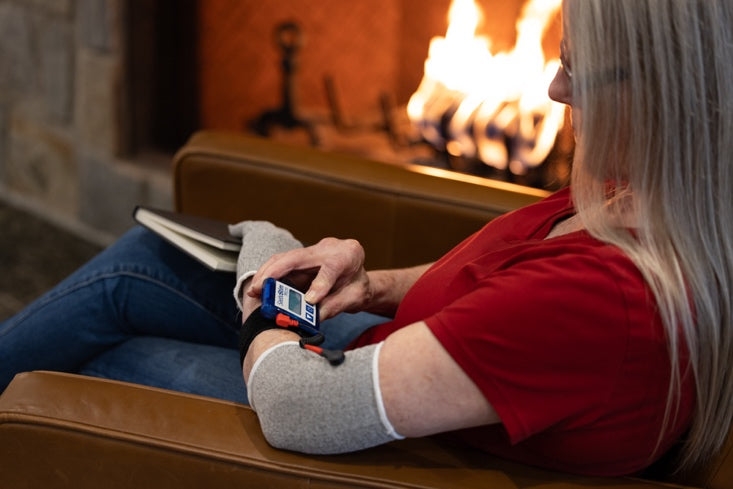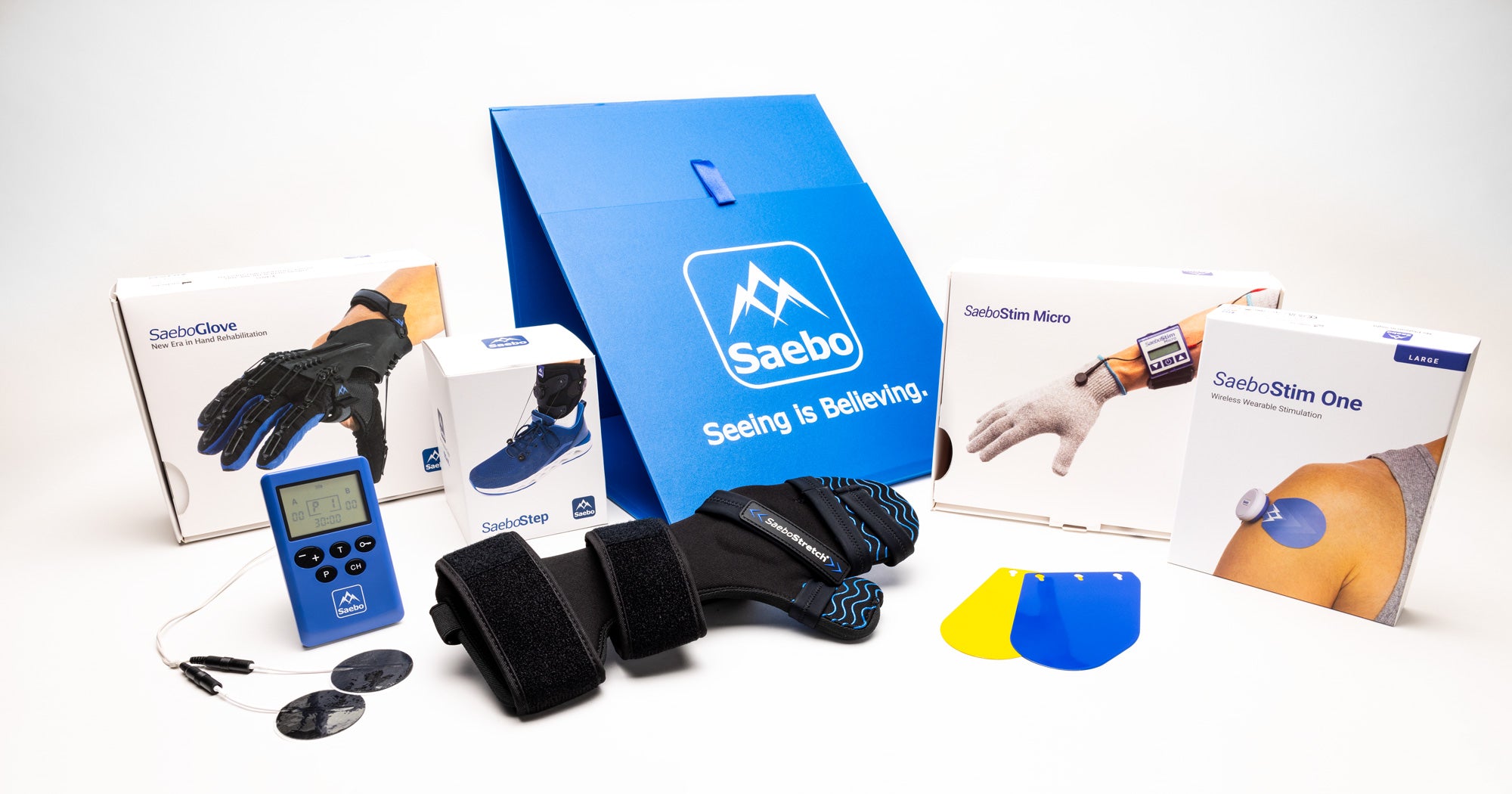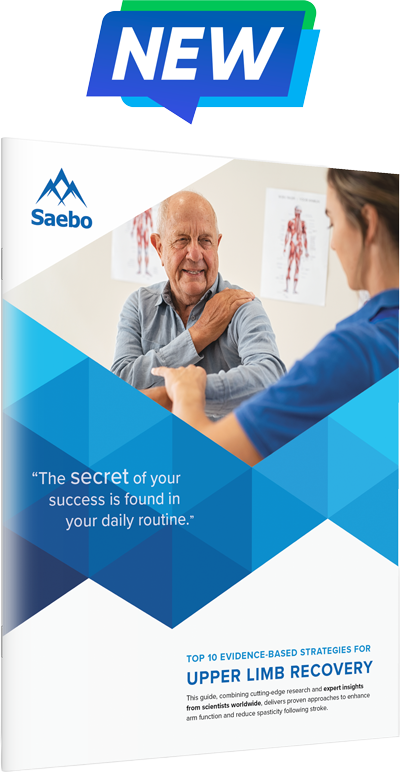Bridging the Gap to Evidence Based Neurorehabilitation Practice

The term “evidence based practice” is now ingrained in our clinical knowledge and discussions though there still remains a gap between knowledge and actual implementation of evidence based interventions. Much research has been done on why this gap persists in order to find methods of bridging this gap. I recently read an article by Fleming-Castaldy & Gillen (2013) in the American Journal of Occupational Therapy that discussed some of these issues. As Director of Clinical Services at Saebo Inc, I couldn’t help but feel a sense of satisfaction when reading this article as it fully validates that Saebo is providing current and evidence based education and products. I will provide a summary here but strongly advocate that clinicians working in neurorehabilitation should read this article.
Fleming-Castaldy, R. P., & Gillen, G. (2013) Ensuring that education, certification, and practice are evidence based. American Journal of Occupational Therapy, 67, 364-369.
The purpose of the article was to facilitate discussions regarding an apparent reluctance in the field to letting go of tradition to embrace emerging evidence based interventions as well as to describe steps to promote adoption of evidence based strategies. To illustrate the author’s message they chose to examine and critically review the evidence on approaches used to treat clients with impaired motor control secondary to neurological injuries such as stroke.
Recent surveys of clinicians working in the field of neurorehabilitation report that preferred theories and strategies are still neurodevelopment treatment (NDT), Brunnstrom, and proprioceptive neuromuscular facilitation ([PNF] Natarajan et al., 2008) despite significant research that indicates these strategies are based on outdated understandings of motor control and recovery (Fleming-Castaldy & Gillen, 2013). Knowledge of cortical plasticity of the adult central nervous system (CNS) has contributed to extensive understanding of the benefits of task oriented treatment approaches based on current theories of motor control and motor learning. Despite this, clinicians are reluctant to give up tradition and embrace current evidence based strategies (Fleming-Castaldy & Gillen, 2013).
The authors cite Rensink, Schuurmans, Lindeman, and Hafsteinsdottir (2009) who state that the use of task specific training, especially for UE recovery for individual’s status post stroke, should be routinely used and recommend that clinicians need to provide opportunities for the practice of functional tasks outside of therapy sessions.
The authors indicate that the current education and certification requirements for clinicians exacerbate the use of outdated theories which are still being currently taught in the academic curriculum, are still included in current text books, and are still being tested on current certification exams. The authors ask why outdated approaches are still being taught when the evidence does not support them.
Fleming-Castaldy and Gillen (2013) suggest that in order to bridge the gap from tradition to current evidence based practice, clinicians need to adopt open minds, embrace evidence based interventions, and reject interventions “deemed ineffective or inferior by evidence” (p. 367). As an example of this, according to Fleming-Castaldy and Gillen (2013) Bobath instructors in the Netherlands have recommended an abandonment of the “obsolete and constantly changing assumptions use to explain the Bobath concept” (p. 367) and the acceptance of the new evidence based task oriented approaches supported by motor relearning theories.
As stated by Fleming-Castaldy and Gillen (2013) “the time is now to make the shift from tradition to evidence” (p.367).
As clinicians, we are ethically bound to provide best practice to our clients. It is therefore our responsibility to be knowledgeable of and to develop the necessary skills to provide best practice. This requires ongoing training and education. Clinicians who have taken Saebo’s courses in the past are aware that Saebo fully supports the use of interventions that incorporate current evidence based motor control and motor relearning theories. Our goal is to provide “tools” for clinicians to employ these evidence based strategies for clients who would otherwise be unable to participate.
For those interested in learning more about Saebo, in partnership with Motivations Inc, we have recently launched two new CEU self-study courses; an introductory course to Saebo and our Saebo Certification Course, which previously was only offered as a “live” course. If you are interested in finding out more about these courses, you can go to the Motivations Inc website at http://motivationsceu.com/ or contact Saebo directly at education@www.saebo.com

Shannon Scott, OTR/L, is the Clinical Assistant Professor at Stony Brook University Southampton. She is a graduate of the University of British Columbia in Vancouver, Canada and is currently pursuing her doctorate in OT through Quinnipiac University. She has over 23 years of clinical experience, specializing in Neurorehabilitation. She is Level One Brain Injury Certified and is NDT trained. Shannon was one of the first 10 therapists trained in the use of Saebo. Prior to teaching at Stony Brook, Shannon was the Director of Clinical Services at Saebo.
___________________________________________
Whether you are a caregiver, occupational therapist or even a stroke survivor yourself, Saebo provides stroke survivors young or old access to transformative and life changing products. We pride ourselves on providing affordable, easily accessible, and cutting-edge solutions to people suffering from impaired mobility and function. We have several products to help with the stroke recovery and rehabilitation process. From the SaeboFlex, which allows clients to incorporate their hand functionally in therapy or at home, to the SaeboMAS, an unweighting device used to assist the arm during daily living tasks and exercise training, we are commitment to helping create innovative products for stroke recovery. Check out all of our product offerings or let us help you find which product is right for you.
All content provided on this blog is for informational purposes only and is not intended to be a substitute for professional medical advice, diagnosis, or treatment. Always seek the advice of your physician or other qualified health providers with any questions you may have regarding a medical condition. If you think you may have a medical emergency, call your doctor or 911 immediately. Reliance on any information provided by the Saebo website is solely at your own risk.




